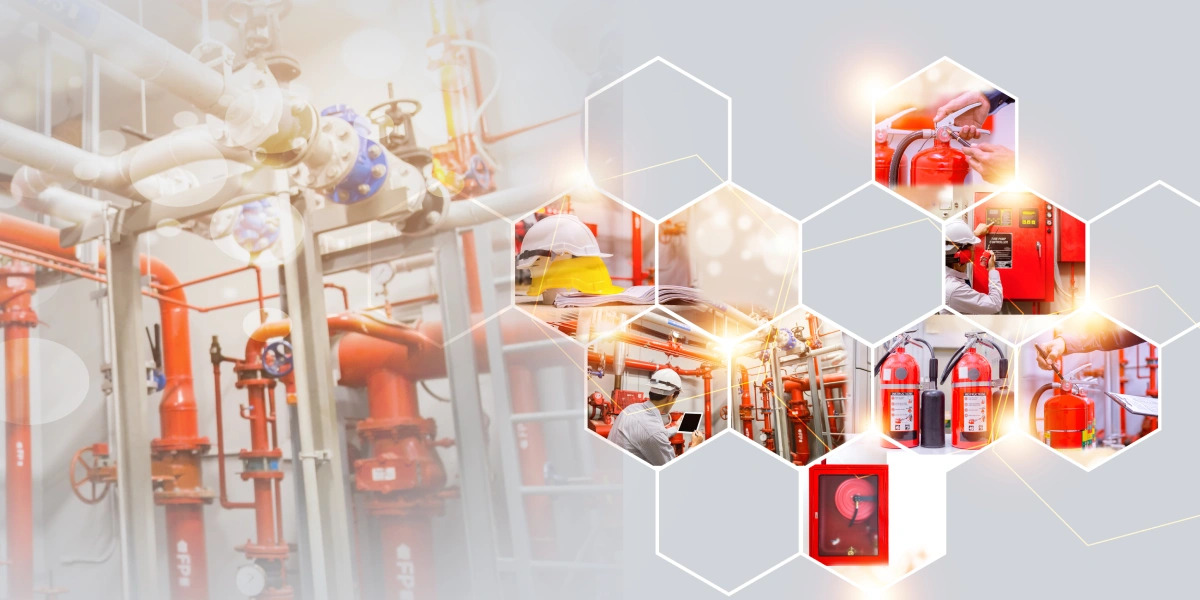As technology continues to evolve, fire protection systems are transforming rapidly to meet new safety standards, sustainability goals, and urban development needs. The year 2025 is witnessing a major shift in how industries, homes, and institutions approach fire safety, with the integration of smart systems, IoT, and AI-driven monitoring.
What is Fire Protection?
Fire protection refers to measures taken to prevent, control, and extinguish fires, minimizing loss of life, property damage, and operational downtime. It includes:
- Active systems like sprinklers, extinguishers, alarms, and detectors.
- Passive systems like fire-resistant walls, doors, and coatings.
- Fire suppression systems that automatically extinguish fires without human intervention.
The 2025 Landscape of Fire Safety
1. Rise of Smart Fire Protection Systems
In 2025, smart fire protection is at the forefront. These systems use AI, IoT sensors, and real-time data analytics to detect risks before they escalate.
Key Features:
- Real-time smoke and gas detection
- Predictive fire analytics
- Integration with smart home/building systems
- Instant alerts to emergency services
2. Advancements in Fire Suppression Systems
Fire suppression systems in 2025 are more efficient, sustainable, and automated.
| Type of Suppression | Description | Use Case |
| Water Mist Systems | Uses less water with higher efficiency | Data centers, museums |
| Clean Agent Systems | Non-toxic gas-based suppression | Server rooms, archives |
| Foam-Based Systems | Smothers fire quickly | Industrial areas, fuel stations |
These systems help protect critical infrastructure while reducing environmental impact.
3. AI and Predictive Analytics in Fire Safety
With AI integration, fire protection systems now predict fire risks by analyzing:
- Equipment temperature trends
- Air quality data
- Historical incident patterns
This predictive approach allows preventive maintenance and pre-emptive evacuation planning.
4. Regulatory Compliance and Standards in 2025
Modern fire protection equipment is designed to meet updated codes such as:
- NFPA 72 (Fire Alarm and Signaling Code)
- ISO 21927 (Smoke and Heat Control Systems)
- NBC 2025 (India’s updated National Building Code)
Compliance ensures safety and avoids legal penalties.
Top Fire Protection Equipment in 2025
Every building must have updated fire equipment for effective fire response. These include:
- Smart Fire Extinguishers – With sensors and digital usage tracking
- Wireless Fire Alarms – Connects to mobile apps and emergency services
- Thermal Cameras – Detect overheating or hidden fires
- Emergency Lighting – Solar-powered and motion-activated
- Multi-sensor Detectors – Combines smoke, CO2, and heat detection
Benefits of Modern Fire Protection
✅ Early Detection and Response
✅ Reduced Downtime in Commercial Settings
✅ Eco-Friendly Suppression Methods
✅ Cost Savings from Damage Prevention
✅ Enhanced Safety Compliance
Fire Protection Trends to Watch in 2025
| Trend | Impact |
| Green Fire Suppression | Eco-safe agents replacing Halon and CO2 |
| AI-driven Maintenance | Systems auto-check for faults or leaks |
| Mobile Integration | Control fire systems remotely via apps |
| Cloud-Based Data | Incident history stored for compliance |
| Drones & Robots | Used in large facilities for fire surveillance |
Choosing the Right Fire Suppression System
Before installation, consider:
- Type of property: Residential, commercial, or industrial
- Fire risks: Electrical, chemical, grease, etc.
- Response time: Manual vs. automatic systems
- Regulatory needs: Ensure it meets national safety codes
- Maintenance availability: Choose systems with low upkeep
FAQs – Fire Protection in 2025
Q1. What is the best fire suppression system for offices?
A clean agent suppression system is ideal due to its non-damaging gas release and fast action.
Q2. Are smart fire alarms worth the investment?
Yes, they significantly improve response time and reduce false alarms through machine learning.
Q3. Is fire equipment different from suppression systems?
Yes. Equipment includes tools like extinguishers and alarms, while suppression systems are automated methods to control fires.
Final Thoughts
In 2025, fire protection has moved beyond traditional methods. Smart technologies, eco-friendly suppression systems, and predictive analytics are now essential components of modern fire safety.
Staying ahead of these innovations isn’t optional—it’s critical. Whether for a home, factory, or data center, upgrading your fire equipment and implementing the right fire suppression system ensures protection, peace of mind, and compliance with future safety norms.


